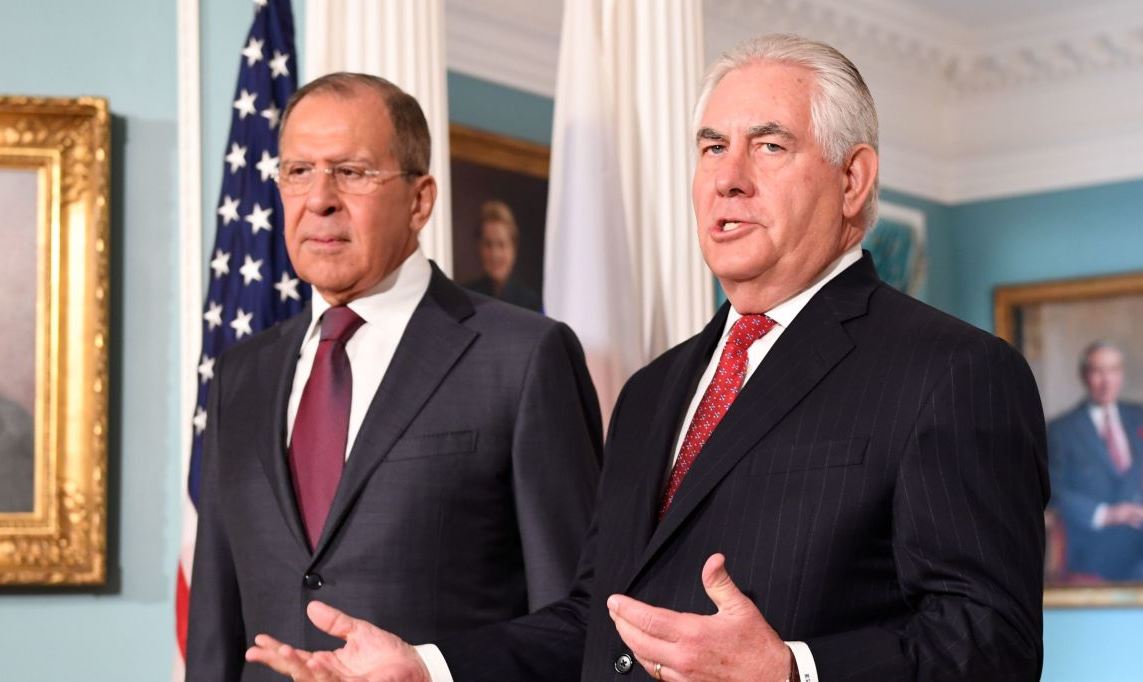
Russia-US Relations: Faint Light at the End of Tunnel
The US-Russian tensions have exacerbated after the American military shot down a Syrian warplane. In response, Russia said it was suspending a «de-confliction» communications channel used to avoid accidents in the air in Syria. «Any aircraft, including planes and drones belonging to the international coalition operating west of the Euphrates River will be tracked by Russian anti-aircraft forces in the sky and on the ground and treated as targets», the Russian Defense Ministry warned on June 19. It should be noted that the US-led coalition operates in Syria without neither an invitation of the Syrian government nor a UN resolution. On June 20, the US hit a Syrian drone and Russian jets intercepted a US reconnaissance plane in the Baltic Sea.
These are just some recent events to illustrate the mounting tensions between the two states. It also happens at a time the US Congress is considering an anti-Russia bill, which would spoil the relations for many years if it becomes a law. Russia has begun to prepare its own punitive measures package in response.
Does the US really need the sharp deterioration of relations with Russia at a time the list of challenges keeps growing? America faces stiff competition from China, the concept of «axis of evil» is revived again to include Iran and North Korea, Cuba is to be viewed as a hostile neighbor again etc.
The exacerbation of Russia-US tensions takes place against the background of the arms control and non-proliferation regime being disintegrated. The crisis is looming large while the two powers fail to make progress. This is the first time there is no dialogue on arms control since the signing of the Partial Nuclear Test Ban Treaty in 1963 – the event to launch the creation of international regime to limit and reduce the existing nuclear arsenals and prevent further proliferation of nuclear weapons.
Indeed, the relations have never been so low since the days of the Cuban Crisis. But not all is doom and gloom as it seems to be. There is some light at the end of the tunnel. It’s dim and few people can see it at all but there is a glimmer of hope.
State Secretary Rex Tillerson is working on a new plan – a classified document – to improve the relations with Moscow. The head of Foggy Bottom has taken it upon himself to shape a coherent policy on Russia. According to him, «The two greatest nuclear powers in the world cannot have this kind of a relationship. We have to stabilize it and we have to start finding a way back».
Setting the existing insurmountable differences aside, the Secretary seeks a constructive working relationship on a set of issues where progress is possible, including the long-running civil war in Syria, North Korea’s rapidly developing nuclear weapons program, cybersecurity and, finally, a range of long-term mutual geopolitical goals.
It happens at a time the State Department is looking for the right person to become the special envoy to deal directly with Russia on Ukraine. A US delegation headed by Under Secretary for Political Affairs Tom Shannon, the State Department’s number three official, is going to St. Petersburg on June 23 to address the problems hindering the normalization of the US-Russia bilateral relations, including such an irritant as the Russian embassy’s diplomatic compounds in New York and Maryland taken away by the Obama administration.
A new Russia-US dialogue forum will be launched this September in Riga, Latvia. Experts and MPs will convene to discuss the thorniest issues and the ways to improve the Russia-US bilateral relationship. The contacts outside the government-to-government framework are the way to institutionalize links between the academic communities and members of parliaments of the countries involved in the process. The initiative has been launched by prestigious think tanks, including the US Atlantic Council, the Russian institutes of World Economy and International Relations (IMEMO) and of Contemporary Development (INSOR) and the Latvian Baltic Development Forum. Latvia will act as an intermediary. The event will be chaired by Alexander Vershbow, the former US ambassador to Russia and former Deputy Secretary General of NATO. At present, the Atlantic Council is headed by Jon Huntsman, who is expected to head the US embassy in Russia.
The first Russia-US top level meeting will take place on the sidelines of the G20 summit in Hamburg on July 7-8. The presidents could agree on some guidelines to steer the relationship but the working groups of experts and parliamentarians could make a significant contribution into improvement of the relations. The previous experience shows that working together they can generate innovative analysis and policy recommendations that better reflect the common ground between the United States and Russia that is so often obscured by mistrust.
These are the first rather small steps to put the relationship back on track. It’s a hard job but it can be done. But all the efforts may go down the drain if the Russia bill tucked into the broader sanctions package against Iran becomes a law. Moscow will have no incentive to discuss anything at all. The bill approved by the Senate is being considered by the House of Representatives now. It can be rejected or amended to leave the door open for both states returning to the policy of constructive engagement. The ball is in the court of US lower chamber of Congress.
div{float:left;margin-right:10px;}
div.wpmrec2x div.u > div:nth-child(3n){margin-right:0px;}
]]>
Filed under: CUBA, NATO, Rex Tillerson, Russia, Trump, US Congress, US Foreign Policy, USA, War on Syria |
Source Article from https://uprootedpalestinians.wordpress.com/2017/06/21/russia-us-relations-faint-light-at-the-end-of-tunnel/
Related posts:
Views: 0
 RSS Feed
RSS Feed

















 June 21st, 2017
June 21st, 2017  Awake Goy
Awake Goy  Posted in
Posted in  Tags:
Tags: 
















